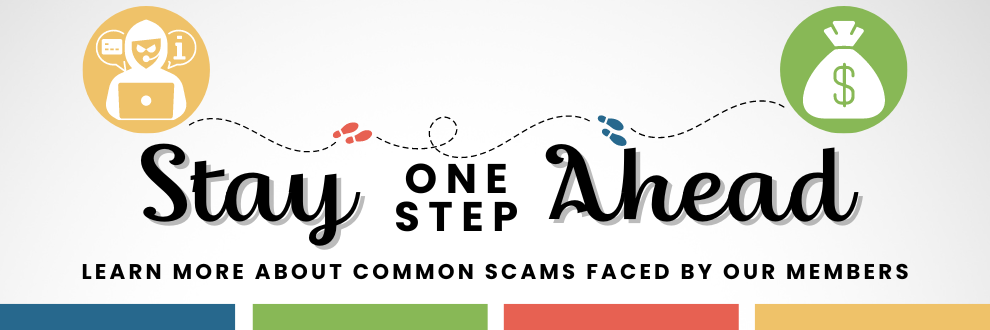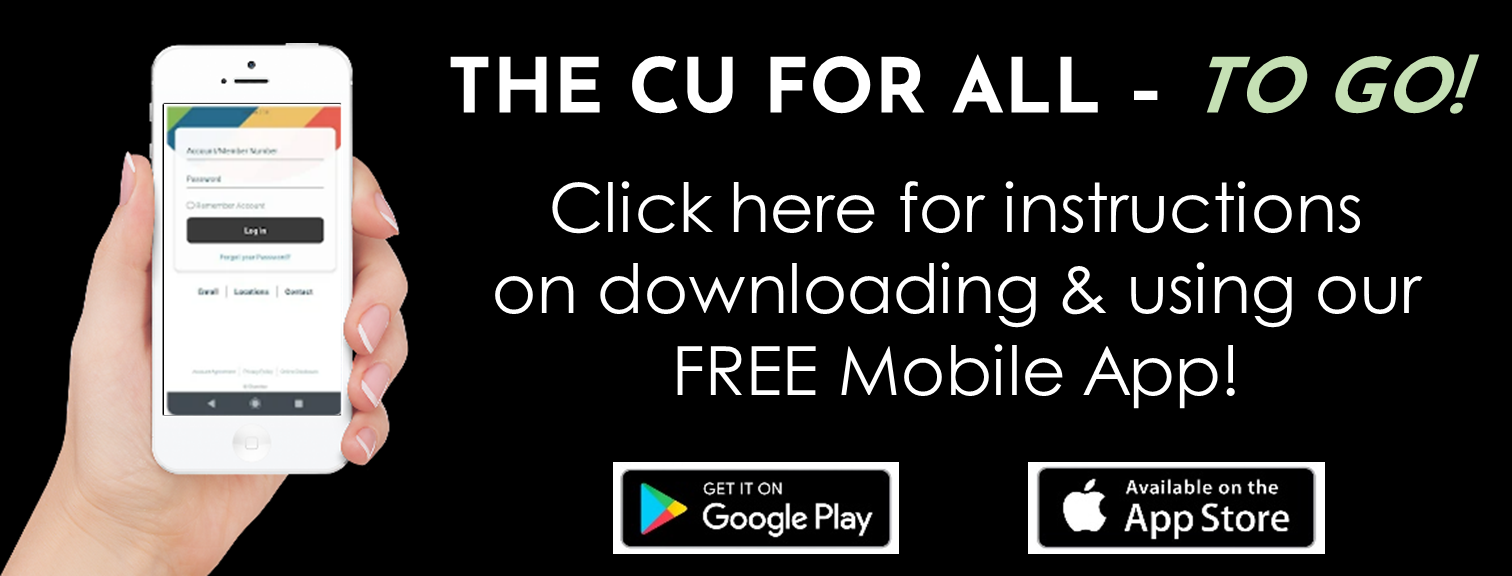
Safeguarding your financial future starts with awareness. At The Credit Union for All, we’re committed to helping you protect yourself from ever-growing fraud schemes through education and support. Read more below about common scenarios and ways to protect yourself.
Scam Scenario: Stolen Account Information
Fraudster posed as a representative from Target and contacted our member to “help set up her Target card.” Through the process, the fraudster requested our member’s username and password login for her online banking account with The Credit Union for all.
- Key Takeaway: Usernames and passwords should always be kept private and NEVER shared. Once a fraudster has access to your online banking, they can transfer funds out of your accounts. Secure Checking from The Credit Union for All offers credit monitoring services that alert you to suspicious activity. Learn more here.
Scam Scenario: “IRS” Phone Calls
Scenario 1: Fraudster posed as a representative from the IRS and demanded $100,000 from our member. Throughout the phone call, threats were made to intimidate the victim into following along. The phone call took place over several hours and our member was told not to trust The Credit Union for All. Police were called and the situation was resolved.
Scenario 2: Fraudster posed as a representative from the IRS and requested gift cards to pay off owed taxes. They requested the gift card numbers and PIN to liquidate the funds. Because the transaction happened over the phone, the money was unable to be recovered. Scam amounts have ranged from $1,700 to $7,000.
- Key Takeaway: Slow down! Fraudsters rely on you being flustered and afraid. Ask questions, consider the situation, and be wary of any long phone calls. If you’re feeling uneasy, hang up and call back.
Scam Scenario: Bitcoin Conversions
Fraudsters have posed as someone needing payment and have contacted members to demand money. They request the payment be made in Bitcoin, which makes funds untraceable once converted. Scam amounts have ranged from $5,000 to $30,000.
- Key Takeaway: Requests for Bitcoin should be scrutinized. Instead, insist on paying with a check as checks can be cancelled. Resisting demands and redirecting the conversation is one way to stop fraudsters.
Scam Scenario: Romance Scams
A fraudster from another country contacted our member online and developed a romantic relationship. In order to meet in person, the fraudster insisted on being sent money to travel. Our member took out a loan to provide the funds to her online romantic interest, who took the money but turned out to not be real.
- Key Takeaway: Generosity is typically a great quality, but not when it comes to protecting yourself from scams. Approach these situations with caution and if you have doubts, consult a friend or your credit union for a second opinion.
Scam Scenario: Stolen Information
A fraudster stole extensive identification, including Driver’s License Number, Social Security Card, and more, and applied for a loan using the stolen identity. The documents looked legitimate, but quick thinking from our lending team prevented this loan from being processed. It was revealed that the identity was stolen from unsecured boxes during a recent move.
- Key Takeaway: Consider investing in a home safe or other locked box to keep your personal documents secure. Avoid keeping things in easily accessible places such as drawers or your car’s glovebox.
Scam Scenario: Stolen Information
Fraudster posed as a home remodeling contractor and provided quotes and estimates to complete work for a member. After sending a $40,000 check, the contractor disappeared. No work was ever completed.
- Key Takeaway: Before authorizing any payments, verify who you’re paying. Request to see copies of business information such as a W-9 or corporate charter. Any reputable organization will be comfortable sharing this information to secure your business.
Scam Scenario: Shoppers Remorse
Fraudsters often post fake listings on Facebook Marketplace or sell products that don’t exist, enticing buyers with low prices or free items. Their goal is to access your debit or credit card information. After our members have placed orders, the items never arrive, and some even find the shop they ordered from no longer exists.
- Key Takeaway: When online shopping, if a deal seems too good to be true, it probably is. If you’re an online shopper and think you might have fallen victim to a scam, call The Credit Union for All to have your debit card locked.
Scam Scenario: Lying Lenders
Fraudsters sometimes mail checks to members with instructions to cash the check and transfer the funds back to the fraudster. In one instance, our member had applied for a loan online and thought the check in the mail was a result of the loan application. Our MSRs will ask questions, but ultimately our members are responsible for any funds cashed against their account.
- Key Takeaway: Verify any checks you deposit or cash. If you weren’t expecting to receive funds but find a check in your mailbox, there’s likely a scam involved.




